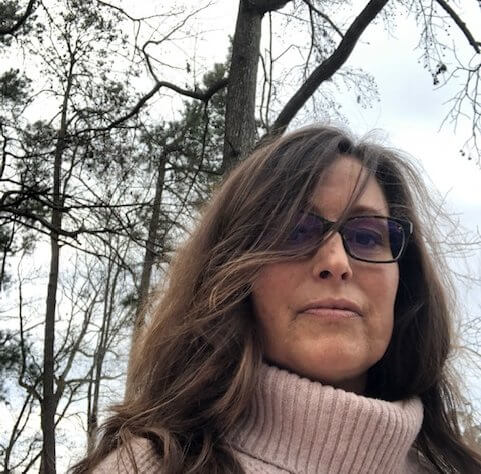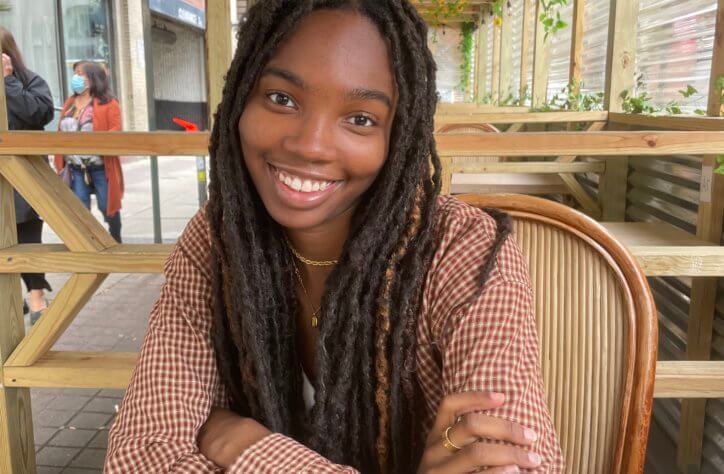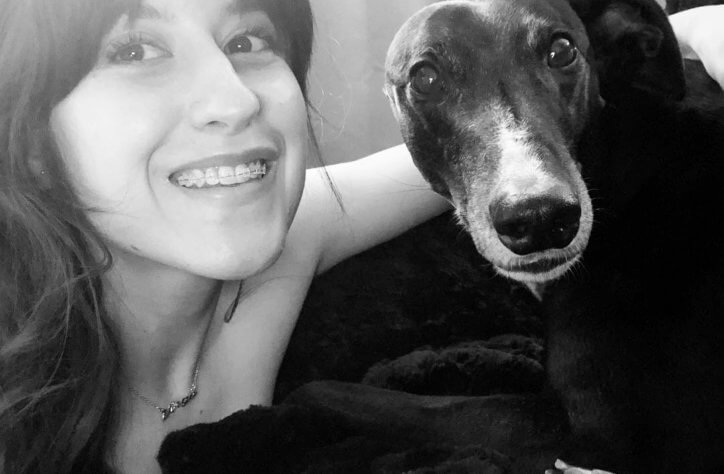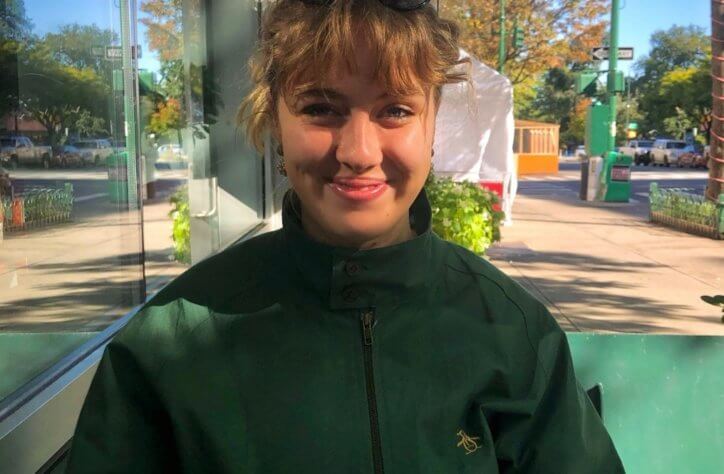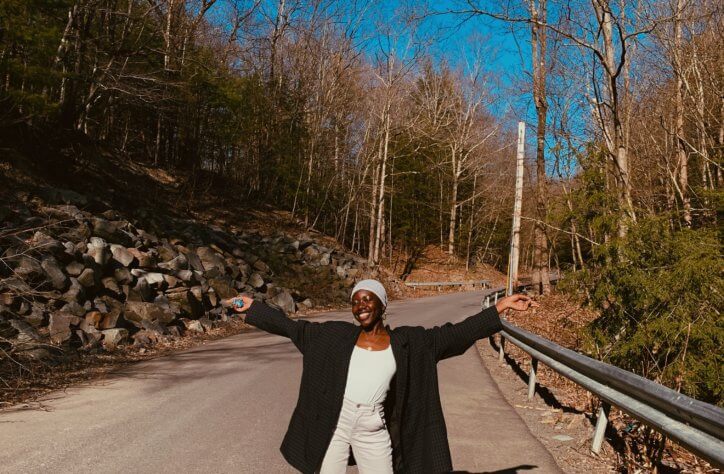Being the product of an interracial relationship never concerned me growing up. Despite being rigorously schooled on the importance of liberalism, diversity and acceptance, there were no lesson plans for discussing race in relation to my experiences in our house. Aged 9, driving though my paternal home of Canning Town, East London, I innocently asked my dad “why’s everybody here got black hair?”. He laughs reminiscing on this, nostalgic at my childish ignorance. I feel sad thinking of my younger self’s disconnect from her blackness. Unable to make even a visual connection between the tightly curled afro’s she gawked at and her own unruly mane of curls. It epitomises the success of my ‘colour-blind’ education.
Living in a predominantly white area, attending a predominantly white school, my parents prepared for my life assuming my experience would be predominantly white too. In a time where this attitude was presented as a kindness to the Other, children like me up and down the country were raised on well-intentioned lies. With one eye shut, only able to see half of ourselves.
Mixed race people are amongst the largest growing populations in Britain, meaning large portions of the younger generation are growing up ill-prepared, without the guidance of a parent that has or will ever experience their world. In recent coming of age Netflix drama Ginny and Georgia, we watch mixed race protagonist Ginny navigate life while straddling two worlds, never quite at ease in either. Discussing this identity crisis with her black dad, who, true to the trope, had been absent most of her life, he tells her “I’m never going to know what it’s like to navigate your world, and your mom won’t either.” People of colour with no support network, unable to look to blackness or whiteness to decode their experiences, are left isolated and doubting themselves.
What I find truly unsettling in adulthood is white parents of bi-racial children that use their families as proof of their completed anti-racist work. They martyr themselves as a symbol of progression, weaponising their brown children to dominate, or entirely excuse themselves from, conversations around race. Proximity to blackness cannot protect the mind from internalising the racism that is omnipresent in our society. I think it’s time that this attitude was held to account.
Unable to understand their brown child’s experiences, it is commonplace for white parents to invalidate them all together. At a family function, my close mixed-race friend sat through an evening of mansplaining by an arrogant white cousin, who asserted that black stereotypes are based on genetic facts. Passionately relaying the night’s events on the journey home, she was met with laughter from the front seats of the car. Her white mother and stepfather flipped the tables, calling her racist for making wild accusations. Shamed into silence, she was left to unpack her frustrations alone.
Last week, the nation watched as Thomas Markle used his genetic proximity to blackness to dismiss not only his daughter’s experiences of racism from the British press, but British racism entirely, in his GMB interview. He commented, “I don’t think the British are racist. I think Los Angeles is racist, I think California is racist,” perfectly illustrating why someone who has neither experienced nor researched racism, its manifestations and impacts, is a
poor spokesperson for it. The racism in America, in Los Angeles and California, is in your face, behind a gun, on your neck. The racism in England lurks behind polite smiles, in the cladding of tower blocks, between the headlines on front covers. From microaggressions to colourism, British racism can be invisible to the untrained eye, leaving many white people confidently, yet ignorantly, disputing its existence. The positioning of Thomas Markle’s voice, next to journalists, academics and race experts, highlights how dangerous and flawed it is to allow white people with black children to feel entitled taking up room to speak on the black experience. During conversations around the experiences and locations of British racism, there’s nothing more valuable than black British voices.
With my knuckles beginning to turn white around my morning coffee, my mind fled Thomas Markle’s interview, wondering back to a viral twitter clip, one that mirrored his entitlement. In May 2020, a fare-dodging train passenger reacted to being caught by brazenly asking the black ticket inspector for his passport. The man’s eerily instinctual self-defence to suggestions of his racism was “I’ve got two mixed race children and this guy thinks I’m a racist…it’s always the black card!”. The irony of travelling across the country illegally while simultaneously inferring that a uniformed black man is an illegal migrant is a conversation on white privilege unto itself. However, the attitude of being above racism, post-racial even, because of your children’s blackness is unnerving. This man uses his bi-racial children as an excuse to maintain his racist beliefs; of the ticket inspect as a criminal, of racism as a black weapon yielded like a card in a game.
People who enter into interracial relationships deny themselves the ability to ignore the ways that race impacts our world. Asking people who aren’t actively racist to acknowledge how they’re complicit in its continued existence is hard, especially without a prescribed vocabulary around racism. But it is necessary. The backwards state of play for many mixed heritage families leaves parents of bi-racial children carelessly stumbling through a nuanced and complex world of race whilst their children are experiencing it. As people who haven’t yet confronted racism are increasingly committing to these roles of parenthood, they must adequately equip themselves with the knowledge to do so. Reni Eddo-Lodge in her Sunday Times best seller, Why I’m No Longer Talking to White People About Race, suggests that “couples of different heritages must discuss race – what it means to them, how it currently effects their lives and how it might affect their future children’s lives”. The narrative of discomfort surrounding these conversations is the first barrier for mixed heritage couples.
My parents hadn’t factored my blackness into their preparations for my life, inadvertently instilling in me an attitude of assimilation over celebration. As I’ve grown into my blackness, we’ve engaged in constructive and impactful conversations about my experiences and my metamorphosising identity, allowing it finally to flourish. Despite being grateful for this, it has only reaffirmed in my mind that it’s never too soon to begin this dialogue.
